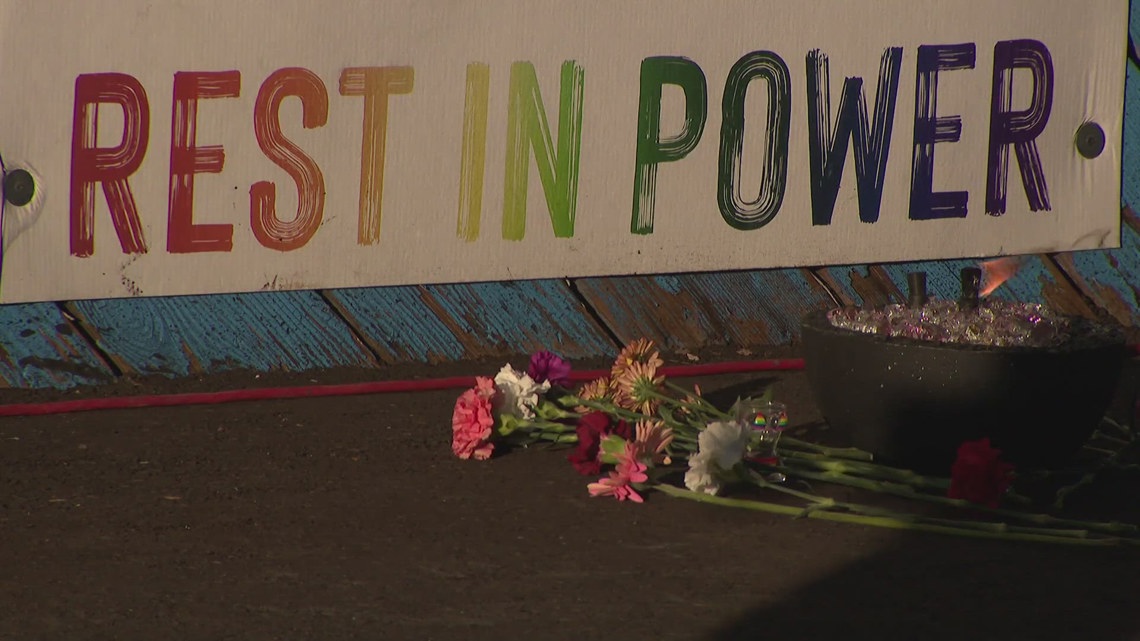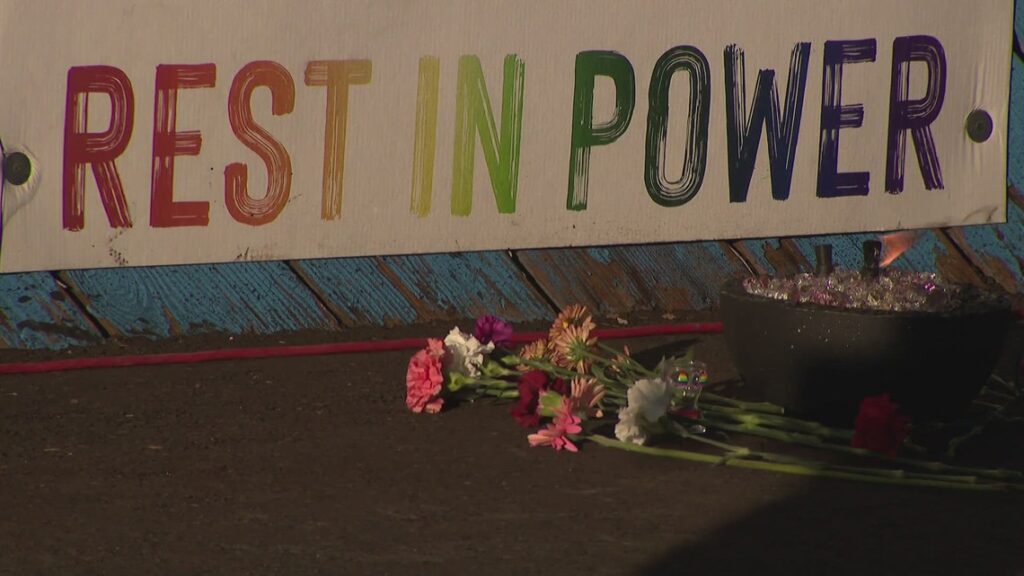
The lawsuits allege the nightclub was negligent in providing adequate security, and that El Paso County commissioners failed to utilize Colorado’s red flag law.
COLORADO SPRINGS, Colo. — Two years after a shooter killed five people and wounded 25 others at Club Q in Colorado Springs, two federal lawsuits lay the blame for the tragedy on both public officials and the nightspot’s owners.
El Paso County’s commissioners and sheriff bear responsibility because they refused to use the state’s “red flag” law to take guns away from the shooter after he was involved in a standoff the year before, the suits assert. And Club Q’s owners bear responsibility for cutting corners when it came to security and even basic safety, the suits allege.
“The shooter had previously stated that he had plans to conduct a mass shooting, making this tragedy both foreseeable and preventable,” said Patrick Huber, one of the attorneys representing the families of three of those who died and nine others who were injured.
The suits, filed in federal court in Denver, do not list a specific dollar amount the plaintiffs are seeking. That will be up to jurors — assuming the suits go to trial.
In a statement, El Paso County’s commissioners declined to comment on the suit. Efforts by 9NEWS to reach the county’s former sheriff, Bill Elder, and Club Q’s three co-owners were not successful.
One of the suits also names the shooter, who is serving multiple consecutive life sentences for the attack.
“The Club Q shooting was perpetrated by the violent actions of a single individual,” one of the lawsuits claims. “However, this tragedy was enabled by systemic failures, including law enforcement’s refusal to enforce Colorado’s red flag law, which could have prevented the shooter from possessing firearms, and inadequate security measures at Club Q.”
In the late night hours of Nov. 19, 2022, the shooter entered Club Q and opened fire with an AR-15-style assault rifle. Five died, and 25 others were injured before patrons at the club stopped the shooter.
Claims of negligent security
The suits assert that Club Q’s owners failed in their duty to provide a safe space for their customers. Back doors where people could have escaped were blocked, the suit asserted, and they cut back the security staff despite a deadly shooting at an LGBTQ+ club in Florida in 2016.
“Club Q advertised itself as a safe space, but that was a dangerous illusion,” said Sarah Raisch, another of the attorneys for the victims. “They had only one security employee on staff, and that employee also worked as a bar back and as a food runner, and not only was that employee woefully untrained in security measures and emergency preparedness, so were the rest of the employees at Club Q that night.”
The lack of security, especially in an environment geared toward the LGBTQ+ community, was a foreseeable risk, the lawsuits claim.
Founding Club Q owner Michael Haynes and co-owners Kenneth Romines and Nicholas Grzecka are named in the lawsuit as parties responsible for the club’s security arrangements.
“Haynes and Club Q exercised an utter disregard for the safety of individuals on the premises, violating the duty of care they owed to keep people safe,” one lawsuit claims.
The lawsuits assert that in 2022, despite an increased awareness for greater security at LGBTQ+ nightclubs, Club Q reduced its security team from five to one. The club also no longer employed an armed guard.
Additionally, the only security staff member had not been background checked or trained as a security guard, one lawsuit claims, which meant protecting patrons was “an impossible task.”
“But for these inadequate and defective security policies, procedures, and safeguards employed by Club Q, among other negligent and wrongful conduct, the mass shooting would not and could not have occurred,” one lawsuit alleges.
In addition to the owners, the lawsuit also names various LLCs and G.I.G., Inc., all of which were involved with the operations of the nightclub.
Claims of failure to enforce ‘red flag’ laws
One focus of the suits is a Colorado law that established what’s officially known as an “extreme risk protection order.” Known unofficially as the “red flag” law, it lets police, family members and others ask a judge to remove guns from people who are a danger to themselves or others. If a judge grants an ERPO petition, a person’s guns are taken for up to a year.
A year before the attack at Club Q, the shooter got into a standoff with police after threatening to kill his grandparents. The lawsuits accuse the El Paso County commissioners and former sheriff Bill Elder of ignoring the danger posed by the shooter — and willfully circumventing the “red flag” law.
“The shooter had previously stated that he had plans to conduct a mass shooting, making this tragedy both foreseeable and preventable,” Huber, the attorney, said.
In 2019, before Colorado’s red flag law was signed, the El Paso County commissioners unanimously passed Resolution No. 19-76, which declared El Paso County a “Second Amendment preservation county,” formally opposed to the red flag law, according to the lawsuits.
Separately, the El Paso County Sheriff’s Office adopted a policy opposing the red flag law in 2020, the lawsuits contend.
One lawsuit alleges that the sheriff’s office, under Elder’s leadership, issued a statement saying that “[a] member of the El Paso County Sheriff’s Office will not petition for an ERPO or TRPO unless exigent circumstances exist, and probable cause can be established pursuant to 16-3-301 C.R.S that a crime is being or has been committed.”
The statement also said, “[a]bsent probable cause and a signed search warrant, members of the sheriff’s office will not conduct searches for firearms.”
By the time of the Club Q shooting in 2022, one lawsuit says, the El Paso County Sheriff’s Office had not filed a single ERPO petition under the red flag law, including against the Club Q shooter, whose family had reported a series of concerning incidents to law enforcement.
By not enforcing the red flag law, the lawsuits claim, both Elder and the board of commissioners “actively created or increased the danger to Plaintiffs by maintaining policies and practices that heightened their vulnerability to private violence.”
“Elder’s deliberate policy of non-enforcement of Colorado’s Red Flag Law, coupled with his conscious disregard of explicit and credible threats, demonstrated a willful indifference to Plaintiffs’ safety and constitutional rights,” one lawsuit claims.
It goes on to similarly castigate the board, saying, “The deliberate indifference demonstrated by the Board in refusing to address known threats, coupled with its policy of non-enforcement of Colorado’s Red Flag Law, created conditions that directly facilitated the Club Q shooting.”









More Stories
Retiring Rafael Nadal’s career ends as Spain is ousted at Davis Cup
Sharp rise recorded in landmine casualties in 2023, warns report
Iran warns European powers IAEA censure will ‘complicate’ nuclear talks